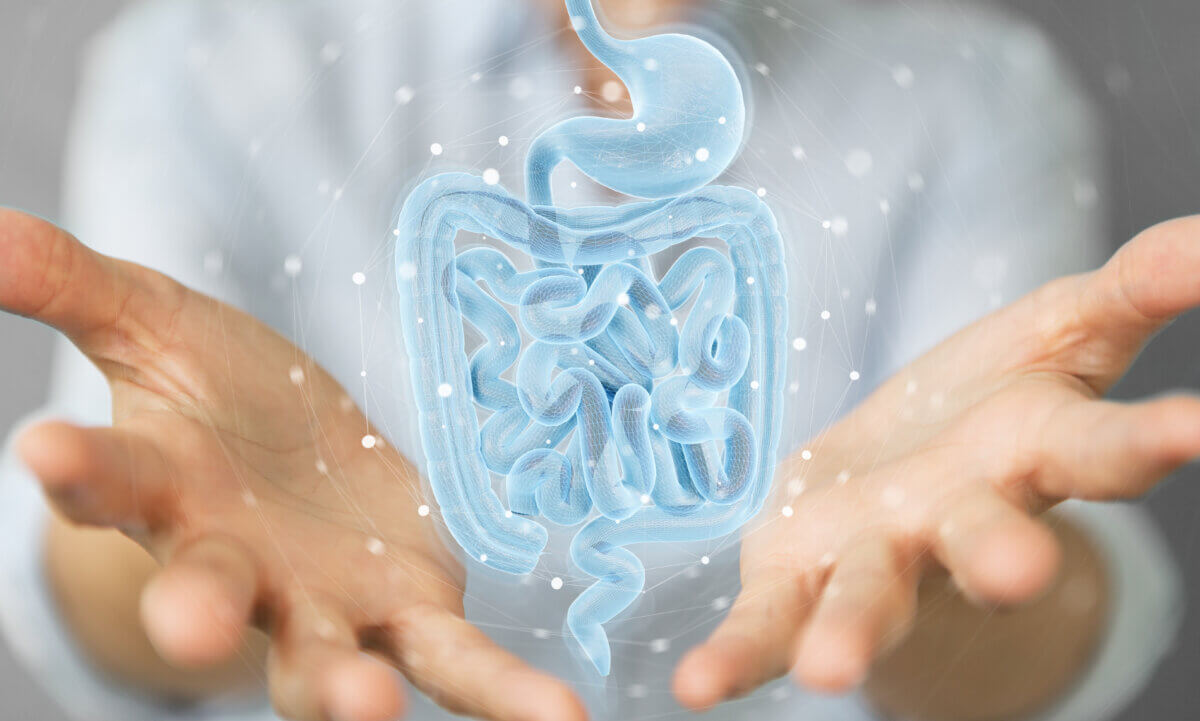PHILADELPHIA — The mere thought of all that food on Thanksgiving is enough to send many living with inflammatory bowel diseases running to the bathroom. However, new findings suggest filling up on turkey this holiday season may actually ease ulcerative colitis symptoms. Scientists at Thomas Jefferson University explain their new study reveals that certain foods, particularly those high in tryptophan — like turkey, pork, nuts, and seeds — may reduce the risk of future colitis flares.
While this project was based on data collected among rodents, study authors say if their findings can be replicated in people, it could lead to a new noninvasive method of improving long-term colitis management.
“Although there are some treatments for ulcerative colitis, not everyone responds to them,” says senior author Sangwon Kim, Ph.D., an assistant professor of immunology at Thomas Jefferson University, in a media release. “This disease has a huge impact on quality of life, and can lead to surgery to remove the colon or cancer.”
Synonymous with symptoms including stomach pain, weight loss, and diarrhea, ulcerative colitis is caused by inflammation of the inner lining of the colon and rectum. With that in mind, Dr. Kim and colleagues opted to search for new ways of cooling down inflamed tissue. They focused on a group of immune cells called T-regulatory (T-reg) cells, known to help break the cycle of inflammation. They theorized that if they could get more T-reg cells to the colon, perhaps it could reduce the inflammation causing colitis.

Next, researchers deliberated on how best to attract the T-reg cells, discovering a specific receptor on the surface of T-reg cells that acts like a magnet for the colon. The more of this receptor (CPR15) the T-reg cells have, the stronger the attraction to the colon. After looking for molecules capable of increasing GPR15 production among T-reg cells, the research team uncovered tryptophan (or at least one of the molecules that tryptophan breaks down into in the body) may increase these receptors called GPR15.
To see if these molecules could control colitis, study authors supplemented tryptophan in the diet of mice for two weeks. This led to an observed doubling in the amount of inflammation-suppressing T-reg cells in the colon tissue in comparison to mice that weren’t given extra tryptophan. Researchers also noted a reduction in colitis symptoms – and the benefits even lingered for at least a week after tryptophan had been removed from the diet.
“In human time that might translate to about a month of benefit,” explains Dr. Kim, who is also a researcher at the Sidney Kimmel Cancer Center – Jefferson Health.
Importantly, however, when tryptophan was given to mice in the midst of a colitis flare, it provided little benefit. This important detail indicates adding more tryptophan to one’s diet is only effective at preventing future flares rather than treating them.
Meanwhile, the research team also happened to unintentionally discover a molecule that helps explain why smoking seems to be protective against colitis. Studies have long shown that cigarette smokers actually have lower rates of ulcerative colitis than the general public. The research team uncovered a specific molecule prevalent in various types of smoke, from cigarettes to barbecue, that increases GPR15 levels on T-reg cells.
“Although both might help protect against colitis, tryptophan is obviously the much safer and healthier option,” Dr. Kim adds.
Moving forward, study authors want to test if these results in rodents can be translated to people with colitis. Tryptophan supplementation is generally considered safe, assuming the dose doesn’t exceed 100 milligrams per day. Using the mouse data as a guide, Dr. Kim predicts that 100 milligrams may be suitable to see an effect in humans.
The study is published in the journal Nature Communications.
What Exactly Is Tryptophan?
Tryptophan serves as a precursor to serotonin, a neurotransmitter that helps regulate mood, appetite, and sleep. Serotonin, in turn, is converted into melatonin, a hormone that governs the body’s natural sleep-wake cycle. By promoting the production of these essential regulators, tryptophan contributes to a sense of calm and well-being, which can be particularly beneficial for individuals grappling with the stress and anxiety often associated with ulcerative colitis. That’s also the reason many people joke about falling asleep after eating their Thanksgiving turkey!
The Turkey-Tryptophan Connection
Turkey meat is a rich source of tryptophan, providing approximately 250-350 milligrams per three-ounce serving. This abundance of tryptophan, coupled with turkey’s low-fat content, allows the amino acid to be readily absorbed into the bloodstream, where it can effectively exert its beneficial effects.
Enhancing Tryptophan Absorption
To maximize the absorption of tryptophan from turkey, consider pairing it with complex carbohydrates like whole grains or starchy vegetables. These carbohydrates help stimulate the release of insulin, which in turn facilitates the uptake of tryptophan by the brain. Additionally, incorporating vitamin B6-rich foods, such as bananas, potatoes, and chickpeas, further enhances tryptophan conversion into serotonin.
You might also be interested in:
- Best Ways To Cook Turkey: Top 7 Methods Most Recommended By Experts
- 5 Common Mistakes People Make While Cooking Frozen Turkeys




